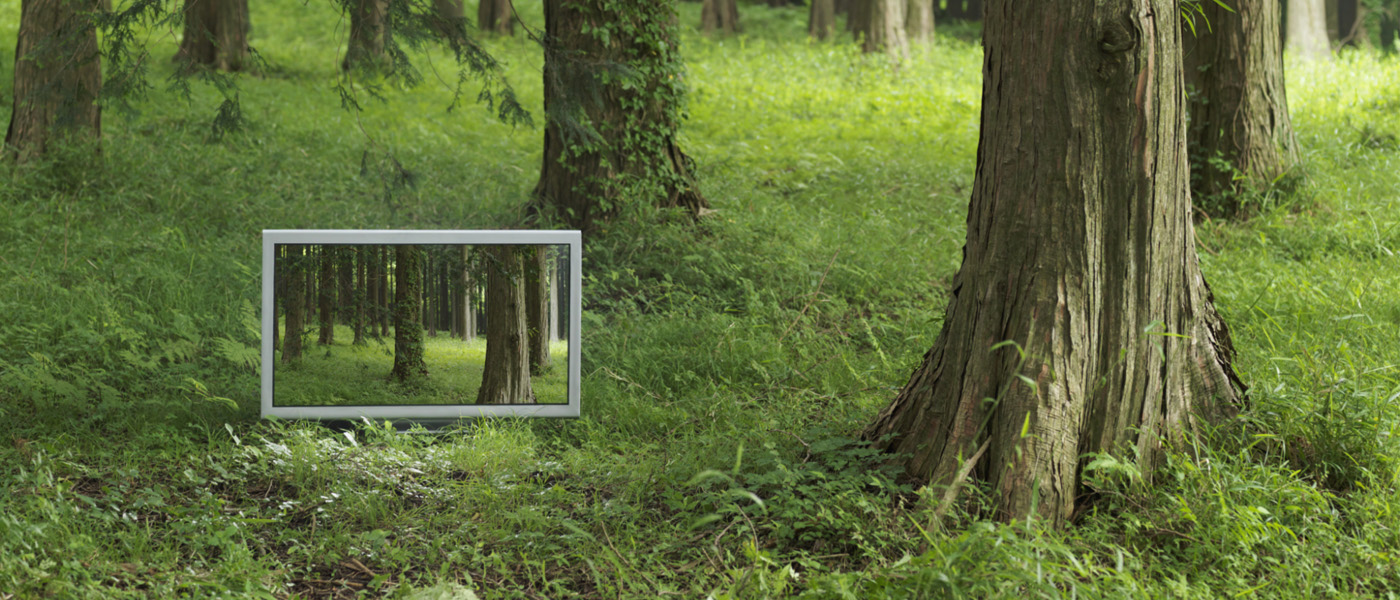Now that it’s almost summer in Syracuse, we’ll all be spending a lot more time outside and less time cooped up in front of our screens. But when the sun goes down and the bugs come out, it will be time to plop back down on the couch. Not ready to stop communing with nature? There are hours upon hours of great nature documentaries to be streamed online, particularly on Netflix. So kick off your hiking boots and put some aloe on that sunburn. Here are eight to start you off.

1. The National Parks: America’s Best Idea (2009)
Length: 6 episodes, 11 hours and 34 minutes America’s most famous documentarian Ken Burns takes you to America’s most beautiful places, tracing the history of the National Park system from the discovery of Yosemite Valley in 1851 to the present-day challenges of conservation in public spaces.2. The Blue Planet: The Natural History of the Oceans (2001)
Length: 8 episodes, 6 hours and 24 minutes British broadcaster and naturalist Sir David Attenborough narrates the BBC’s deep-dive into the wonders of salty underworlds both familiar and foreign. When the cameras delve into “The Deep” in the second episode, you’ll think you’ve traveled to another world where there are millions of terrifying, alien-like creatures—and to think, there might be countless more yet to be discovered. Bonus: Fans of Blue Planet and its sister series, Planet Earth, will be happy to hear that Netflix has just signed a four-year contract with the creators of those series to produce a new series, Our Planet. According to Variety, Our Planet will be shot in Ultra HD 4K format—the latest in super high definition filming technology —and “promises to present never-before-filmed settings, ranging from the ice caps and deep ocean to deserts and remote forests, featuring some of the world’s rarest animals and most precious natural habitats.” It will premiere on Netflix in 2019.3. National Geographic: Amazing Planet (2007)
Length: 3 episodes, 2 hours and 17 minutes Narrated by Patricia Clarkson, this three-part series looks at Earth’s beginnings, and why the third rock is still so volatile. It’s full of characteristically beautiful National Geographic photography and digital renderings of the Earth’s constantly shifting geology.4. Untamed Americas (2012)
Length: 4 episodes, 3 hours The New World may be full of idealism and grit, but it’s also mighty dangerous out there. In this series, National Geographic introduces us to the most dangerous creatures throughout North, Central and South America. Josh Brolin (W., No Country For Old Men) narrates.5. Mission Blue (2014)
Length: 1 hour and 34 minutes If you’re in the mood for something a bit more serious, this Netflix Originals documentary will show you the dire state of Earth’s oceans due to pollution, over-fishing and acidification. It features oceanographer Sylvia Earle and is directed by Academy Award-winning director Fisher Stevens (The Cove).6. Freaks and Creeps (2012)
Length: 3 episodes, 2 hours and 14 minutes Though you may have spent your day admiring the beauty of nature, there are plenty of ugly faces and bright red butts out there to sour your swooning and creep you out before bed. Zoologist Lucy Clarke loves these “freaks and creeps,” and wants to show the world why they’re worth protecting. She’s so committed, in fact, that she risks her life for it. While filming in Borneo, she and her crew almost became crocodile food.7. Blackfish (2013)
Length: 1 hour and 23 minutes In this critically acclaimed and controversial documentary, filmmaker Gabriela Cowperthwaite explores and criticizes the captivity of killer whales for entertainment at SeaWorld. The narrative revolves around the story of Tilikum (“Tilly”), a whale who has killed three people (two trainers and a park guest) since he was captured in the 1980s. He still performs to this day.8. Vanishing of the Bees (2009)
Length: 1 hour and 27 minutes Not everyone loves bees. The children who attended the White House Easter Egg Roll this month do not love bees. But honey bees are invaluable to the ecology of our planet—and to our economic and political structures. This documentary, narrated by Ellen Page (Juno, Inception), aims to explore the whys and hows of the dwindling world bee population. Sarah Hope is a graduate student at Syracuse University, where she focuses on television, entertainment history and classical music. Find her on Twitter @sarahmusing.










